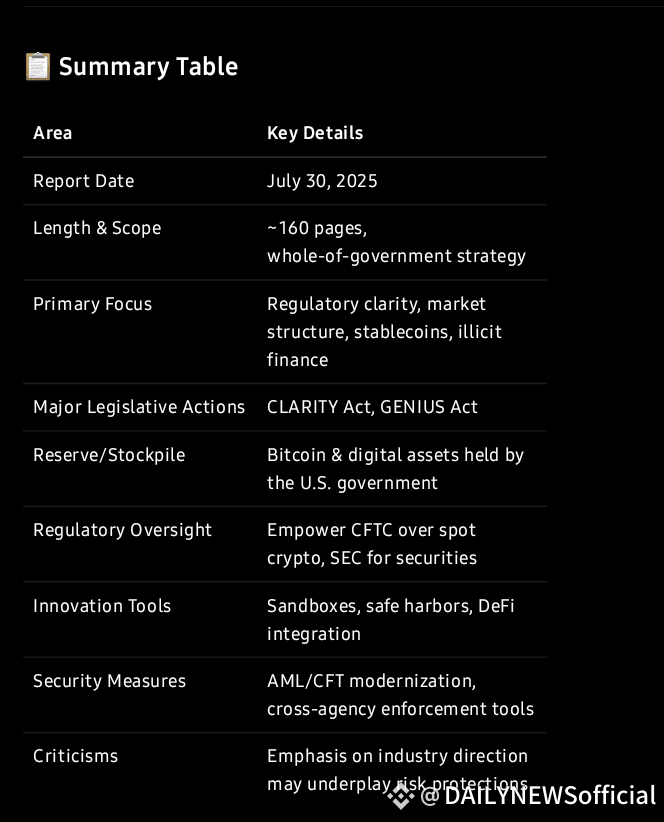Released by the President’s Working Group on Digital Asset Markets as mandated under Executive Order 14178 (“Strengthening American Leadership in Digital Financial Technology”) .
A comprehensive 160‑page report providing a unified strategy and six-month roadmap for U.S. digital asset policy .
Goals: position the U.S. as the “crypto capital of the world”, build regulatory clarity, foster innovation, and secure national competitiveness .
📑 Key Recommendations & Highlights
Regulatory Framework:
Grant the CFTC jurisdiction over spot markets for non-security digital assets.
Clarify roles between CFTC and SEC for custody, trading, and token classification (security vs. commodity vs. commercial use) .
Introduce safe harbors, regulatory sandboxes, and streamlined licensing to promote innovation and DeFi integration .
Banking & Stablecoins:
Require financial institutions to adopt crypto-native practices, tokenized deposits, and stablecoin payments infrastructure.
Promote swift implementation of the GENIUS Act, mandating disclosures, transparency, and redemption rights for stablecoin issuers .
Illicit Finance & Cybersecurity:
Expand enforcement tools and frameworks to combat ransomware, sanctions evasion, mixer usage, and fintech-based crime.
Strengthen AML/CFT rules across centralized and DeFi platforms with real-time typology updates and coordination with private entities .
Strategic Bitcoin Reserve & Digital Asset Stockpile:
Outlines a plan for a government-held Bitcoin reserve (≈200,000 BTC) funded through forfeiture, and a broader asset stockpile for seized digital assets.
Detailed execution to be handled by Treasury and Commerce separately; report stops short of specifying timelines or asset management strategies .
⚡ Market Reaction & Immediate Impact
Mixed Market Response:
Following the report and a Fed rate announcement, Bitcoin briefly dipped from ~$118,650 to ~$117,100, while Ethereum remained relatively steady at ~$3,770 .
Industry Reception:
Called a "crypto industry bible" by insiders, praised for embracing DeFi, sandbox regimes, and bank integration—but critiqued for favoring industry interests over consumer protections .
